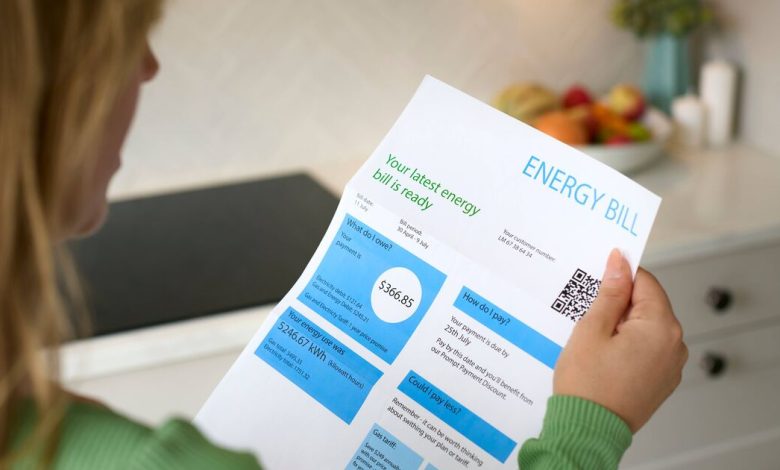Household energy bills to fall by £129 as Ofgem unveils price cap change | UK | News

The wait is finally over for households across the UK, as energy regulator Ofgem is poised to announce a long-awaited decrease in energy bills. Starting in July, the typical household energy bill is expected to drop by approximately 7%, resulting in a annual saving of £129, bringing the average bill down to £1,720. This welcome reduction comes as a relief to many families who have been struggling to make ends meet, particularly after enduring a series of price hikes in recent months. The price cap, which dictates the maximum price energy firms can charge per unit of energy, is set to decrease from the current £1,849 for an average household, marking a significant drop from the previous billing periods.
The expected decrease in energy bills can be attributed, in part, to the dramatic plummeting of gas and oil prices, resulting from US President Donald Trump’s tariff strategies. Although the anticipated dip is slightly smaller than earlier projections of a 9% fall, trade tensions easing in recent weeks have likely contributed to the discrepancy. Cornwall Insight, a leading expert in the field, forecasts that the reduced price cap will lead to a “modest drop” in October, followed by another comparable decline in January next year. This news will undoubtedly bring a sigh of relief to households across the nation, who have been bearing the brunt of soaring energy costs, water bill surges, and significant rises in council tax, mobile and broadband fees, and even road tax.
The past few months have been particularly challenging for households, with the cumulative effect of these bill increases driving the Consumer Prices Index (CPI) inflation rate up to a steep 3.5% in April. This marked a significant peak since January 2024, leaving many families struggling to cope with the escalating cost of living. Craig Lowrey, principal consultant at Cornwall Insight, noted that while the fall in the price cap is a “welcome development”, it is essential to consider the broader context. “Prices are falling, but not by enough for the numerous households struggling under the weight of a cost-of-living crisis, and bills remain well above the levels seen at the start of the decade,” he emphasized. As such, there remains a risk that energy will remain unaffordable for many, highlighting the need for continued vigilance and support for those affected.
The energy price cap, introduced by the Government in January 2019, aims to establish a ceiling on the rate energy suppliers can bill customers across England, Scotland, and Wales per kilowatt hour (kWh) of usage. While the cap does not restrict overall bills, customers continue to pay based on their actual energy consumption. Ofgem adjusts the price cap every quarter, reflecting fluctuations in wholesale market energy costs. This mechanism is designed to protect consumers from excessive price hikes, while also allowing energy suppliers to adapt to changing market conditions. As the energy landscape continues to evolve, it is essential to strike a balance between ensuring affordability and supporting the development of a sustainable energy sector.
The forthcoming decrease in energy bills is a step in the right direction, but it is crucial to recognize that many households will continue to struggle with the cost of living. The cumulative effect of bill increases, coupled with stagnant wages and rising inflation, has left many families with limited financial flexibility. As such, it is essential to consider the broader social and economic implications of energy pricing, rather than simply focusing on the technical aspects of the price cap. By doing so, policymakers and regulators can work towards creating a more equitable and sustainable energy system, one that balances the needs of consumers, suppliers, and the environment.
In conclusion, the anticipated decrease in household energy bills is a welcome development, offering a much-needed respite for families across the UK. While the reduction is smaller than initially projected, it marks a positive step towards addressing the cost-of-living crisis. As the energy sector continues to evolve, it is essential to prioritize affordability, sustainability, and social justice. By working together, regulators, policymakers, and industry stakeholders can create a more equitable and resilient energy system, one that supports the well-being of households and the environment, while also driving economic growth and development. As Craig Lowrey noted, “It’s a step in the right direction, but it should be taken in context.” As such, continued vigilance and collaboration are necessary to ensure that the benefits of the price cap reduction are felt by all, and that the energy sector works towards a more sustainable and equitable future.









33smcc